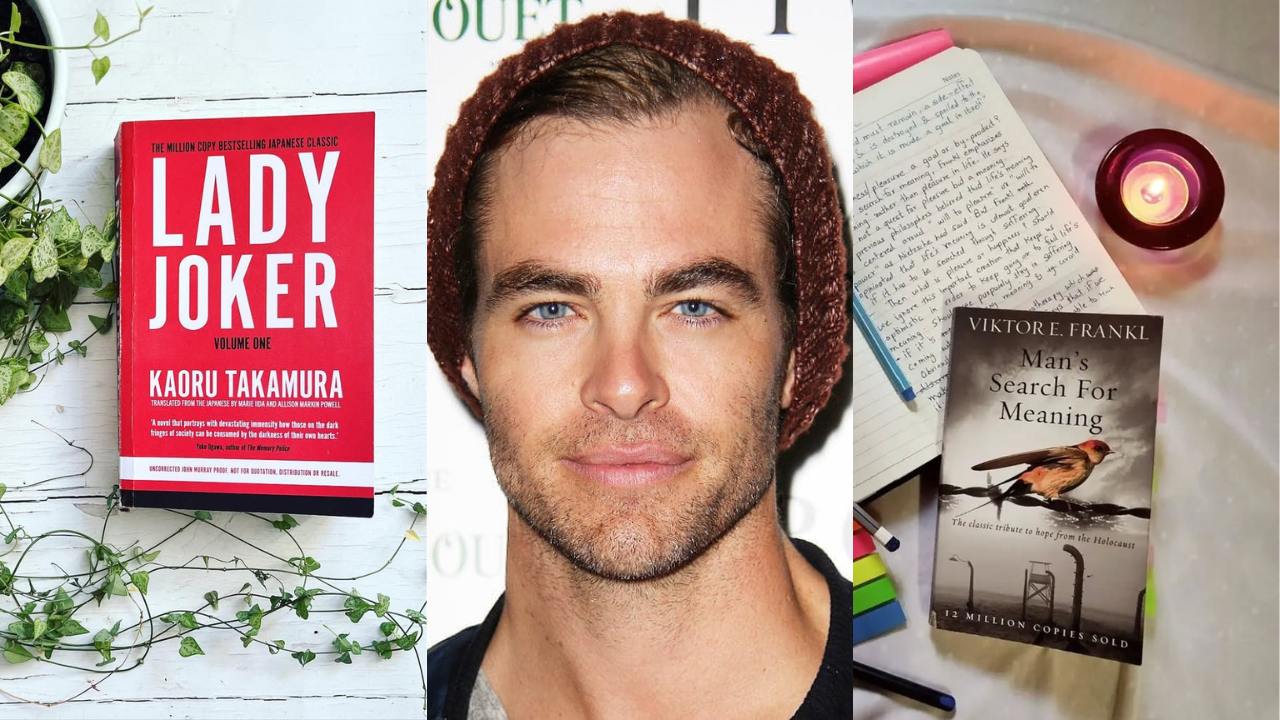Chris Pine isn’t just a charismatic actor; he’s a serious reader drawn to emotionally intense, morally complex stories. His favourite books lean into darkness without cynicism, asking hard questions and trusting readers to sit with uncertainty. From dystopias to historical epics and memoirs born of trauma, Pine’s choices reflect a deep engagement with literature that challenges form, emotion, and ethics. These aren’t curated for image; they’re raw, thought-provoking, and often unsettling. To read like Pine is to embrace discomfort, seek clarity in ambiguity, and find meaning in the mess. This isn’t light reading, it’s transformative. Also Read: 5 Books Recommended by Daisy Edgar Jones 1. Lady Joker by Kaoru Takamura More than a crime novel, ‘Lady Joker’ is a sharp critique of post-war Japan’s systemic inequality. Inspired by a real 1990s kidnapping case, it follows five ordinary men who abduct a brewery executive, but the story quickly expands into a layered look at corruption, capitalism, and alienation. Takamura avoids typical crime tropes, favouring complexity over suspense. Chris Pine admires its haunting intricacy and political depth, and with good reason. 2. A Little Life by Hanya Yanagihara Few novels evoke as strong a response as ‘A Little Life’. Loved, hated, debated, but never ignored. Yanagihara’s epic explores friendship, trauma, and survival with unflinching honesty. Chris Pine calls it one of his most emotionally affecting reads. Centred on Jude, a gifted lawyer with a brutal past, the novel confronts abuse, illness, and isolation with stark clarity. Yet amid the darkness, it finds moments of deep tenderness. It’s a harrowing, unforgettable story that doesn’t look away, and neither does Pine. 3. Tender is the Flesh by Agustina Bazterrica In a world where eating animals is banned, humans become legal meat, the chilling premise of Agustina Bazterrica’s ‘Tender is the Flesh’. Chris Pine calls it one of the most disturbing and thought-provoking books he’s read. At its core is Marcos, a factory manager complicit in the system until one unsettling gift disrupts his numbness. Bazterrica’s prose is clinical and haunting, amplifying the horror through detachment. The novel’s true terror lies not in gore, but in how easily cruelty becomes routine and accepted. 4. Wolf Hall by Hilary Mantel ‘Wolf Hall’ is more than historical fiction; it’s a study in power, psychology, and language. Hilary Mantel reimagines Thomas Cromwell not as a villain, but as a sharp, complex survivor. Set during England’s Reformation, the novel explores loyalty, ambition, and belief. Chris Pine has praised it for its immersive, layered prose and emotional depth. What sets it apart is how Mantel brings history alive from the inside out, turning politics into intimate drama and prose into something quietly radical. 5. Man’s Search for Meaning by Viktor E. Frankl Viktor E. Frankl’s ‘Man’s Search for Meaning’ is part Holocaust memoir, part psychological guide. After surviving four concentration camps, Frankl developed logotherapy, centred on the idea that life’s main drive is meaning, not pleasure. Chris Pine has called the book essential, and for good reason. Frankl recounts horror without sentimentality, offering a powerful testament to inner resilience and spiritual clarity in the face of cruelty. Also Read: 5 Books Recommended by Jamie Lee Curtis Chris Pine’s bookshelf isn’t designed for comfort. It’s filled with fiction and nonfiction that confront pain, injustice, history, and the human psyche head-on. These five books, complex, emotional, and unafraid, offer something deeper than entertainment. They build perspective. Each one demands attention and rewards it with lasting clarity. Whether it’s the moral ambiguity of Cromwell, the existential darkness of dystopia, or the pursuit of meaning in chaos, Pine gravitates toward stories that unsettle and inspire. That’s not just the mark of a thoughtful reader; it’s the reading list of someone constantly asking bigger questions.
